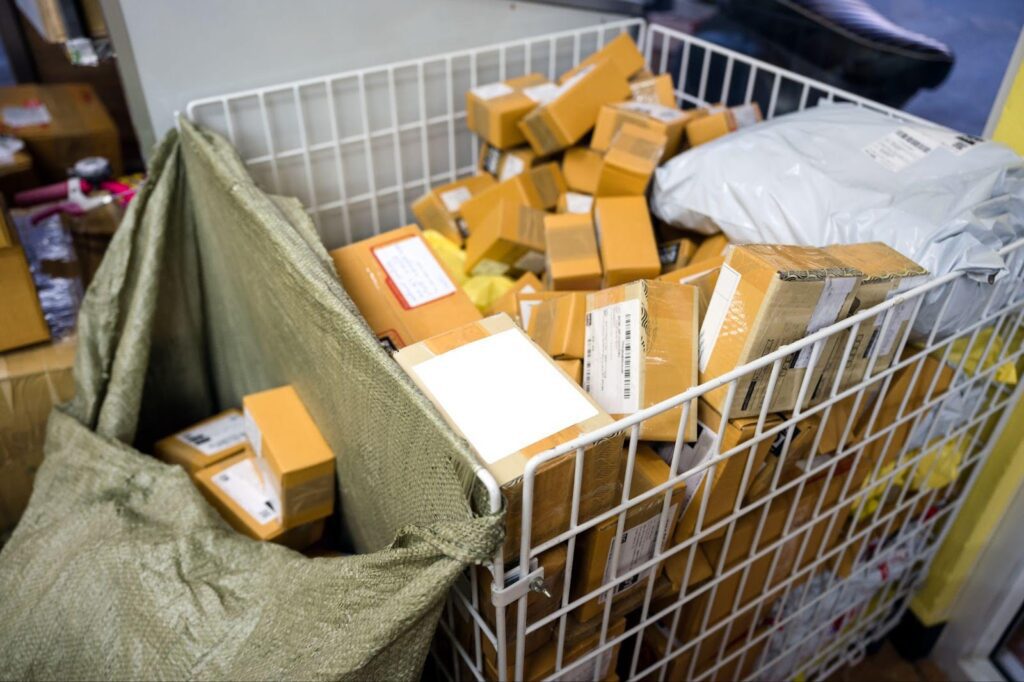As a startup founder, you have big dreams. You envision your innovative product reaching customers far and wide. For many small businesses, breaking into the North American e-commerce market is incredibly attractive. Projected to reach US$2 trillion by 2029, there is certainly plenty of pie to go around.
But what many startups don’t consider is their ability to get products into the United States. In fact, many drop the idea once they face their first obstacle, having to go past US customs when shipping to the U.S.
With the complexity, cost, and time sink of cross-border customs compliance, it can be worthwhile for startups to invest in proper customs software. But before you say “isn’t that just for the big corporations?”, customs software can actually be a strategic, high-ROI investment that empowers even low-volume startups to go global with confidence.
Here’s how.
The Stealthy Costs of Manual Compliance
For a lean startup team, every dollar must deliver maximum impact. Manually handling the administrative tasks behind international shipping is a huge time drain.
Consider these tasks:
- Researching ever-changing Harmonized System (HS) codes.
- Filling out complex, multi-page forms like Commercial Invoices.
- Constantly tracking evolving regulations, such as shifts for packages from certain origins or specific product restrictions.
These tasks eat up precious hours. They divert vital resources. Time that should be spent on product development, marketing, or sales.
Besides the opportunity cost of time, there can even be potential financial pitfalls:
- Hefty Fines: Even minor errors in documentation or product classification can lead to costly penalties from customs authorities. These fines quickly wipe out slim startup margins.
- Unexpected Fees: Imagine your customer, thrilled with their purchase, suddenly hit with unexpected duties or taxes upon delivery. This doesn’t just inconvenience them. It leads to abandoned carts, negative reviews, and a damaged brand reputation. Factor in charges like storage or demurrage for goods stuck at the border, and the costs spiral.
Ultimately, a manual approach to customs clearance creates a scalability block. What happens if your product goes viral? Suddenly, you’re drowning in paperwork. You should be celebrating surging sales. Manual processes simply don’t scale.
The Unexpected ROI: How Customs Software Helps Startups Achieve Their Global Ambitions
This is where the unexpected ROI of automated customs software comes into play.
1. Unlocking Efficiency and Speed
Automated systems are game-changers.
- They handle data entry automatically.
- They perform real-time validation.
- They submit documentation directly and electronically.
This accelerates customs clearance. It means significantly faster delivery times. You get happier customers. You project a professional image. Automated systems can reduce the processing time for complex declarations and get products to market swiftly.
2. Bulletproof Customs Compliance
The software is always up-to-date. It continually updates with the latest regulations, tariffs, and trade agreements, minimizing human error and ensuring accuracy to avoid costly mistakes. This critical level of precision and up-to-date regulatory intelligence is where specialized solutions shine.
Companies like CrimsonLogic North America leverage decades of experience in international trade facilitation to provide sophisticated customs compliance software. This gives startups access to enterprise-grade tools to navigate the intricate requirements of the U.S. Customs and Border Protection (CBP) and the Canada Border Services Agency (CBSA) seamlessly.
3. Predictable Costs and Profitability
Automation brings clarity to your finances. Accurate, upfront duty and tax calculations eliminate surprises, so you can be transparent about your pricing to your customers, building trust and reducing product returns.
4. Built-In Scalability
Unlike manual customs clearance work, which has a cap based on the worker’s competency and speed, software is designed for growth and capable of handling increased volumes effortlessly.
Plus, there’s no proportional rise in operational overhead in order to handle more volume, allowing you to scale from ten international shipping orders to a thousand effortlessly.
Your Passport to Global Growth

In essence, automated customs software is a strategic investment that frees up invaluable time and becomes the backbone of trade compliance to help a startup expand into other markets. For any startup eyeing the lucrative North American e-commerce market, embracing automated customs clearance transforms a daunting challenge into a clear pathway for growth. Explore US customs clearance and compliance solutions at CrimsonLogic North America today for seamless entry into US markets.

